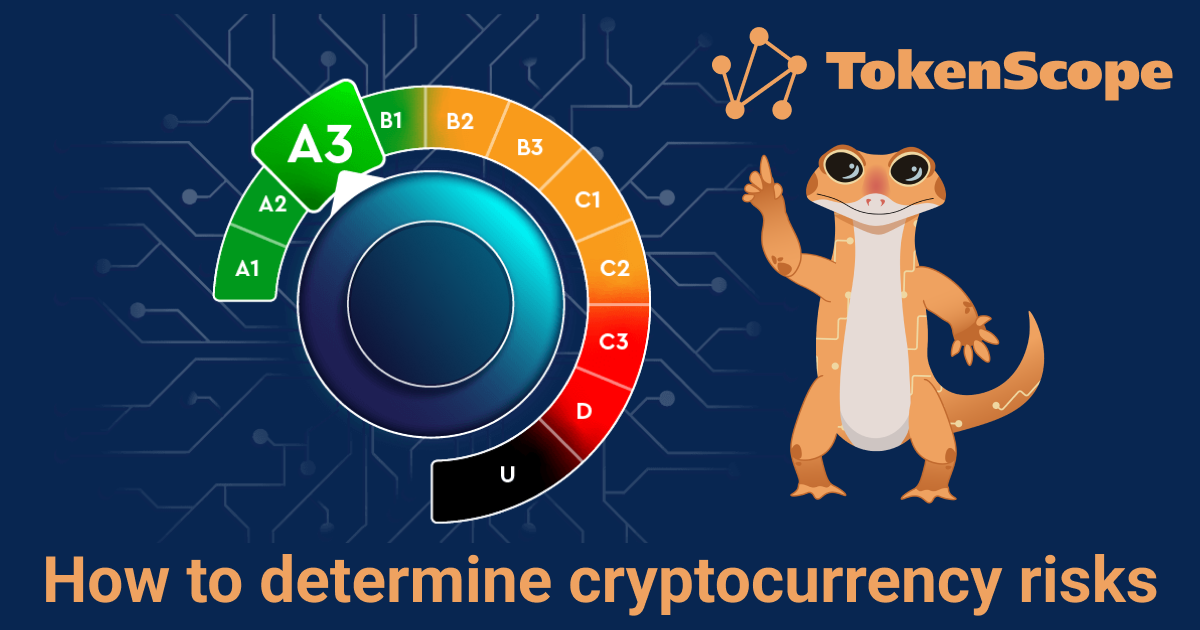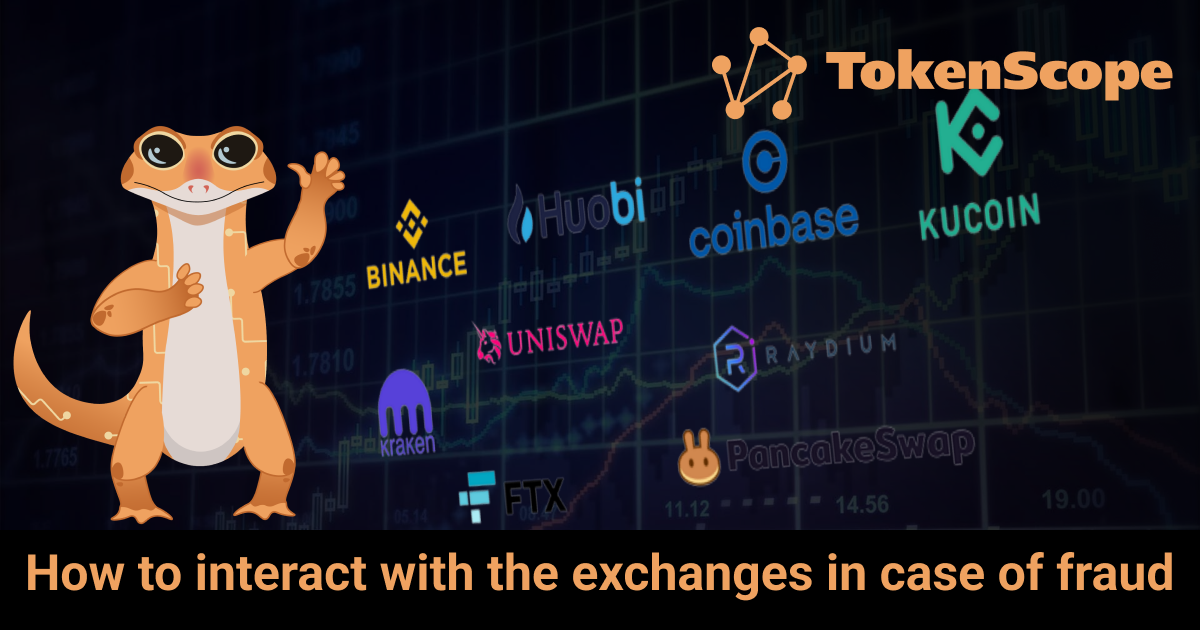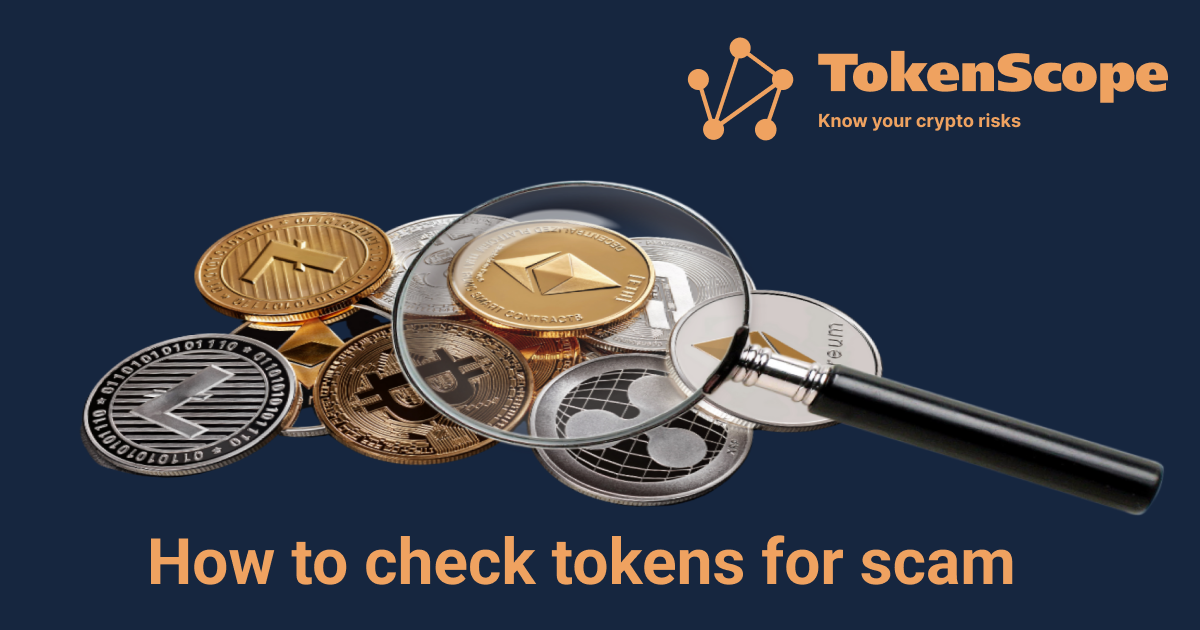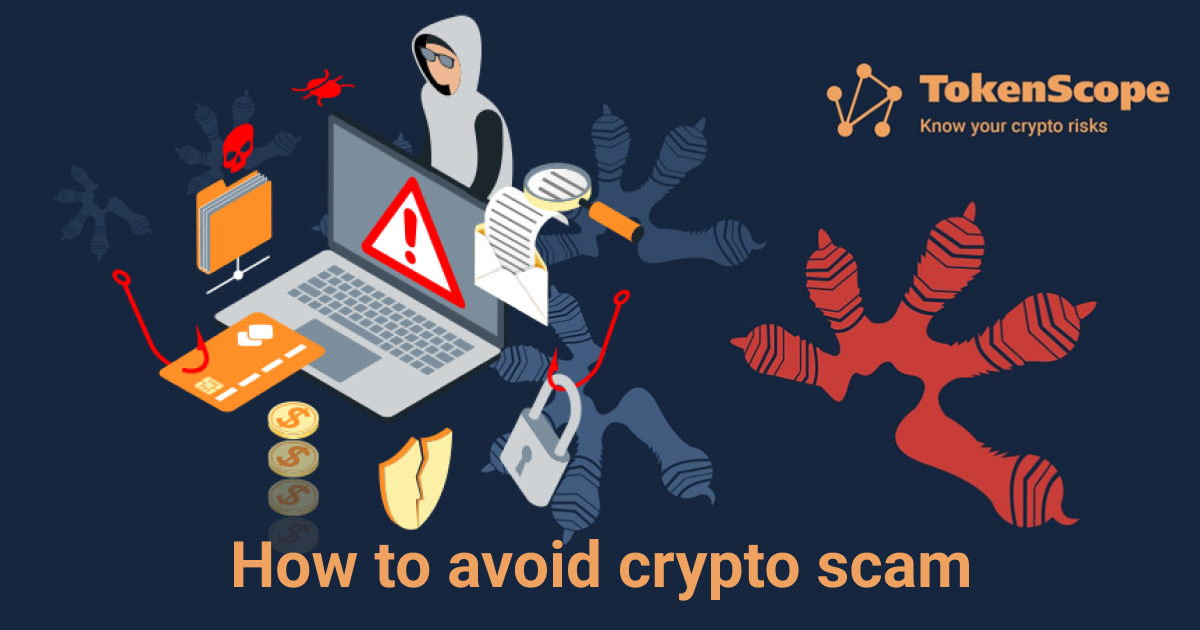How to determine cryptocurrency risks

With the growing worldwide popularity of cryptocurrency, the risks associated with its purchase, trading, storage and exchange into fiat money are also increasing. In simple terms, there is a need to verify cryptocurrency addresses in order to eliminate or at least to substantially reduce these risks.
The TokenScope Cryptocurrency Risk Assessment & investtigation Platform, provides services for cryptocurrency addresses risk assessment and verification. In the following review, TokenScope Team highlighted the most popular cryptocurrency risks.
-
Blackmail – is the most popular kind of frauds, which usually consists of an incoming e-mail (or a message in one of the messengers) saying, for example, that your system has been hacked after visiting a dubious website with a threat of personal photos or private information disclosure unless a ransom is paid to the hacker. To ensure anonymity, criminals often accept payment in cryptocurrency.
-
Darkmarket – in case the wallet you are checking belongs to this category, it means that you are dealing with a seller of goods, works and services, which, for certain reasons are traded on the Dark Web sites. In practice, the range of goods traded on such platforms is associated with goods or services that are either prohibited or restricted.
-
DarkService - this risk of this category is associated with the provision of shady services on the open web or on the Dark Web.
-
Drugs - the activity of the address is associated with the drugs tarading.
-
Hacking - the address's activity is related to hacking, cracking, malware, including cryptocurrency extortion for unblocking the account or decrypting personal data, encrypted by a virus attack.
-
Illegal - any address activity associated with illegal or unlawful activity.
-
Malware - this category refers to malware designed to gain unauthorized access to computer files for the purpose of using these files or to damage the owner of the information and/or computers or their network by copying, distorting, deleting or substituting information.
-
Phishing - this category includes addresses related to a widespread type of the Internet frauds. The purpose of phishing is to gain an access to the confidential data (for example, login and password of an account, or keywords for transferring funds from a cold cryptocurrency wallet), for stealing money or cryptocurrency.
An example of phishing is the creation of a fake website that copies the design of a popular investment service with false credentials for funds depositing, including cryptocurrency. To promote such scam services a mass mailing on behalf of popular brands, banks, personal messages or messages from social networks is used. After a certain amount is collected, the website usually stops operating.
-
Ponzi – this category means that the addresses appeared as related to a cryptocurrency pyramid (examples of such pyramids are Finiko, Thodex, Amir Capital). The creators raise money from the depositors and pay dividends at the expense of newly attracted customers. Funds are raised as if they are to be invested in promising project, but in fact there is no activity. Starting from the moment when new participants stop to join the pyramid, cash flows stop along with the payments to the depositors. As a result, the creators are in profit and all the participants lose the invested funds.
-
Ransom - this risk is associated with various forms of cryptocurrency extortion for not performing, or, on the contrary, for performing certain actions, for instance: a ransomware encrypting personal data on your computer or a hacker threatening to disclose your personal photos and personal data to third parties.
-
Scam – this cryptocurrency address category indicates that the project belongs to the most common type of frauds. Usually fraudsters, hackers make the victims trust them and under different pretexts propose to transfer money or cryptocurrency to a certain address.
-
Stolen Token - any address activity related to the theft of cryptocurrency.
-
TFRisk – this kind of address is related to the financing of terrorism, the highest risk, as it has a potential connection with a crime of special gravity, recognized not only at the national but also at the international level. This entails the corresponding negative consequences when conducting payments to the crypto addresses of this category.
-
Sanction - this risk implies that the address is on the UN sanctions list, as well as of certain countries or associations of countries with restrictive measures imposed. This should be taken into account when dealing with such an address.
Successful investments in cryptocurrency projects and don't forget to check addresses for risks, it can help to save your funds!
Also, you can report us any cases related to specific cryptocurrency addresses and the considered risks at TokenScope via "Reporting a cryptocurrency address" form. This will help to protect other users from the risks of interacting with such addresses and their owners.


